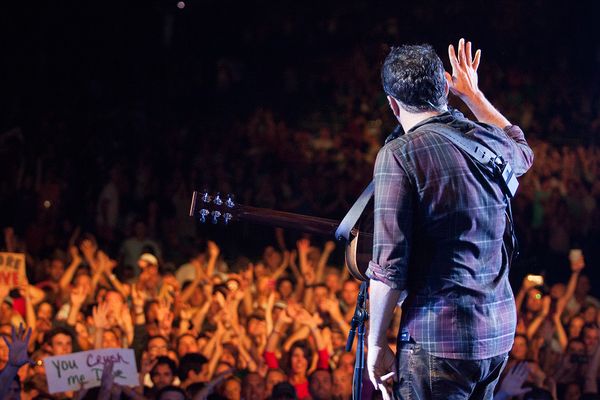Poetry has the ability to tell stories, address issues, change mindsets and inspire young minds. In its written form, we’re able to find stanzas, the lack or presence of punctuation, line structure and various other features that are visible to the eyes but wouldn’t be if read aloud.
Spoken word poetry isn’t something we normally associate with or learn about in our English Literature and Writing seminars. It falls under a unique combination of performance and poetry coming together to create a sense of musicality and art sans the presence of music or props. The first time I heard spoken word poetry was during a live performance by Sarah Kay and Phil Kaye in high school. At first, I thought it was the most awkward, inane and strange method of communicating ideas and concepts because of the confrontational tone and half-performance, half-storytelling configuration. They would fling their arms around and grab the microphone as they spoke their poetry with zeal and passion, giving the experience an air of eccentricity. But as the evening progressed, I fell in love with the art form because of its simplicity, its rawness and its ability to address thoughts, emotions and events in a person’s life in a delightfully rhythmic and lyrical way.
Watching the performances live, I was captivated by Sarah Kay and Phil Kaye’s confidence in voicing their verses so emotively, powerfully and conversationally. They did it with incredible ease, and I remember wondering how they could balance memorizing such lengthy poems and performing them live for an audience in which the majority were probably witnessing such an art form for the first time in their lives. Sarah Kay and Phil Kaye’s ability to captivate the audience and leave an incredibly powerful impact on the minds of listeners has left a constant nagging question in my mind –– why is spoken word poetry so underrated and unknown as a performance art form?
Sarah Kay has been a performing poet since she was 14 years old and is the founder of Project VOICE, an organization that uses spoken word poetry as a literacy and empowerment tool. Her incredible talent for weaving words into poignant, captivating, funny and powerful performances has a strange transformative ability to help you make sense of life and reimagine the world in new ways. Writer of "B" and "No Matter the Wreckage," Kay’s poetry addresses themes that everyone can relate to and build off of, from woman empowerment to love and loss. From young girls to working mothers, her poems have taken me across a spectrum of life’s difficult and remarkable moments, giving me insight into new ways of looking at life and appreciating spoken word poetry as an innovative and expressive form of art and communication.
“The Toothbrush to the Bicycle Tire” By Sarah Kay
They told me that I was meant for the cleaner life;
that you would drag me through the mud.
They said that you would tread all over me,
that they could see right through you,
that you were full of hot air;
that I would always be chasing,
always watching you disappear after sleeker models—
that it would be a vicious cycle.
But I know better. I know about your rough edges
and I have seen your perfect curves.
I will fit into whatever spaces you let me.
If loving you means getting dirty, bring on the grime.
I will leave this porcelain home behind. I’m used to
twice-a-day relationships, but with you I’ll take all the time.
And I know we live in different worlds, and we’re always really busy,
but in my dreams you spin around me so fast, I always wake up dizzy.
So maybe one day you’ll grow tired of the road,
and roll on back to me.
And when I blink my eyes into morning,
your smile will be the only one I see.
For more information about Sarah Kay, visit her website http://www.kaysarahsera.com.













 man running in forestPhoto by
man running in forestPhoto by 










